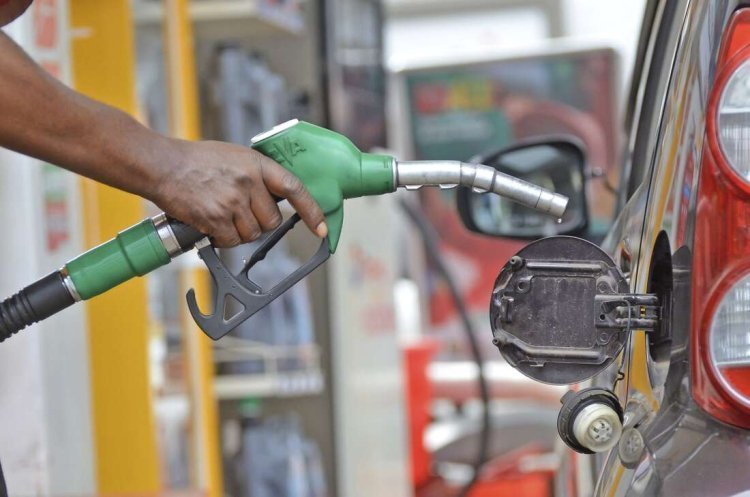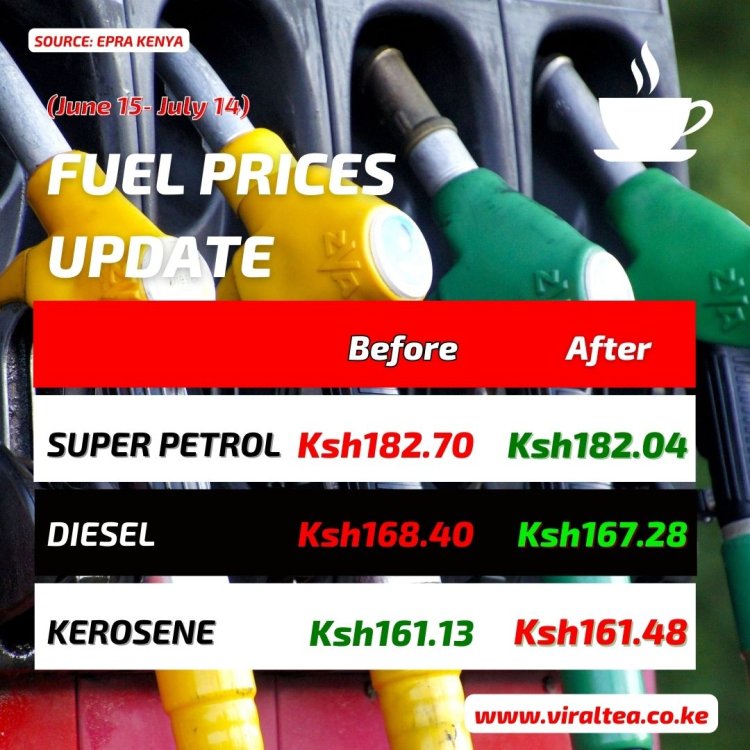EPRA To Break Tradition, Increase Fuel Prices Tomorrow
The regulator highlighted the reason behind the adjustment, citing the increase of the Value Added Tax (VAT) on fuel from eight to sixteen per cent.

The Energy and Petroleum Regulatory Authority (EPRA) will on Friday, June 30 announce new fuel prices following the implementation of the Finance Act 2023.
EPRA's statement on Thursday, June 29 is a break from tradition whereby the review of fuel prices is normally announced on the 14th of every month before the new prices take effect from midnight the following day.
The regulator highlighted the reason behind the adjustment, citing the increase of the Value Added Tax (VAT) on fuel from eight to sixteen per cent.

A car being fuelled at a petrol station. /FILE
"On 26th June 2023, H.E. the President Dr William Ruto signed into law the Finance Bill, 2023 introducing a 16 per cent VAT on petroleum products.
"Accordingly, EPRA will tomorrow 30th June 2023 release the reviewed petroleum prices in compliance with the finance bill 2023," stated EPRA.
EPRA will announce the new fuel prices less than two weeks after it decreased the cost of fuel on Wednesday, June 14. The extra 8 per cent VAT on fuel is likely to have an adverse effect, especially on fuel price per litre, national revenue and cost of essential household products.
The Finance Act 2023 is likely to see petroleum products such as petrol, diesel and kerosene be the first affected by the price increase, with the 8 per cent equivalent to approximately Ksh15, which would be added to the cost of petrol, provided that other factors of supply and demand stay constant.
Regarding the fuel price, owing to the current EPRA prices for the month of June-July among other factors to be taken into consideration while setting new prices, the cost of Super Petrol would likely go from Ksh182.4 in Nairobi to Ksh196.992 by July 2023 and subsequently might shoot to more than Ksh200 in the coming months.
Diesel, on the other hand, which at the moment goes for Ksh167.28 will increase by 8 per cent (Ksh13.3824) to around Ksh180.6624 per litre at fuel stations in Nairobi. Kerosene which retails at Ksh161.48 will increase by 8 per cent (Ksh12.9184) more to Ksh174.3984 at fuel stations in the capital.
The increase in VAT is just one of the many factors to be taken into consideration with regard to fuel prices in the country. Other factors to be considered include the global oil price and the exchange rate, which could have a varied effect.
16% VAT's Benefits To Ruto Govt
It might be argued that the increase in VAT comes as a boost to the State in terms of generating more revenue, estimated at Ksh50 billion, which President William Ruto had assured would be used to rehabilitate roads.
"We are going to increase the VAT by 8 per cent for two reasons number one because having differential rates one at 8 per cent, others at 16 per cent poses an integrity problem, people use it as a loophole to manipulate numbers.
"This 8 per cent that we are adding is going to give us about Ksh50 billion it will begin to deal with the problem of roads across the country," Ruto stated during a joint media interview at State House.
Even though EPRA for the month of June-July reduced the price of Super Petrol and Diesel decreased by Ksh0.66 per litre and Ksh1.12 per litre, the price of Kerosene increased by Ksh0.35 per litre and players in the fuel sector fear that the trend could see Kenyan motorists pay above Ksh200 per litre of fuel.







